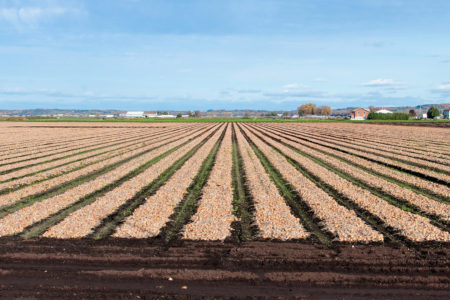
When the Finance Minister’s Advisory Council on Economic Growth put an emphasis on Canada’s agri-food sector in its second report, Canada’s food-system leaders viewed it as a gift. Those within the sector have long recognized its core strengths and untapped potential, but now those outside our food system are increasingly recognizing the tremendous opportunities. A burgeoning global population, a growing global middle class, and changing consumer trends here and abroad are creating enormous demand for higher-value ingredients, foods and beverages.
Using the council’s report as a starting point for discussion, the Public Policy Forum and the Canadian Agri-Food Policy Institute partnered on a coast-to-coast consultation process and heard from more than 150 sector leaders and stakeholders. Despite the broad diversity of the sector, we heard a consistent message – the prime minister should champion Canada’s food system and quickly create two bodies to drive the growth agenda.
The PM should create an industry-led agri-food growth council (AGC) that consists of leaders from across the entire food system and include adjacent sectors like health and technology. The AGC should focus on a few major regulatory priorities at a time, with the aim of making our regulatory process a comparative national advantage. It should ensure that consumers are protected and that the regulatory environment becomes nimbler and more modern. This would help drive investment, innovation and competitiveness. Recognizing the cross-departmental nature of agri-food issues and the need for a whole-of-government approach, the AGC should report to the prime minister through the Privy Council Office.
To complement the AGC’s work, the prime minister should also mandate an interdepartmental task force to improve collaboration. This task force would triage and resolve regulatory issues — minor irritants as well as major, structural obstacles to competitiveness. The aspirational vision proposed by the advisory council — that Canada become “the trusted global leader in safe, nutritious and sustainable food for the 21st century” — should be the lens through which all relevant policies and strategies are assessed.
Sector leaders also recognize that Canada must lead on public trust, or we will put at risk our food brand and the opportunity for balanced regulation. Educating consumers and improving their “food literacy” — from fork back to farm, including trust in science — is an essential part of risk mitigation for the agri-food sector.
So too is positioning Canadian agriculture and food as a source of solutions for health and environmental sustainability. As health care costs put an increasing strain on public budgets, the linkages between our food system and health outcomes will need more attention. Focusing on environmentally sustainable growth — reducing pollution, addressing climate change and enhancing natural capital (such as soil and water) — is also critical. Sustainability not only delivers on expectations that enhance public trust, it is also a driver for reducing costs, adding new value, enhancing productivity, and ensuring profitability. Delivery of these additional advantages in health and sustainability — what are often called “co-benefits” — will help agri-food remain a priority sector, attract investors, entice talent and build public trust. Credible data, good metrics and systems for sharing information are vital for industry to demonstrate progress on this.
There are enormous opportunities for Canada to ramp up food exports, especially for value-added products — products that are processed rather than exported in their raw forms. Also, our agri-food growth strategy should not neglect the domestic market, where there are significant opportunities for small and medium agri-food enterprises to grow their businesses. One important component of supporting domestic enterprises is taking swift action on internal trade barriers, because we heard in our consultation that it is sometimes harder to ship to another province than to export to another country.
Food can unleash significant economic growth and deliver broad societal benefits. Now is the time to mobilize leaders from across the food system and government to build on the advisory council’s ideas and take bold action, so we can make Canada an agri-food powerhouse. The next, critical steps in this are for the prime minister to create an agri-food growth council and an interdepartmental task force to drive this growth strategy, and for food-system players to take the initiative and align themselves around key goals, which include each subsector working to set appropriate targets and strategies.
This article is part of the Canadian Agriculture at the Cutting Edge special feature.
Photo: Shutterstock/Tyler Olson
Do you have something to say about the article you just read? Be part of the Policy Options discussion, and send in your own submission. Here is a link on how to do it. | Souhaitez-vous réagir à cet article ? Joignez-vous aux débats d’Options politiques et soumettez-nous votre texte en suivant ces directives.










